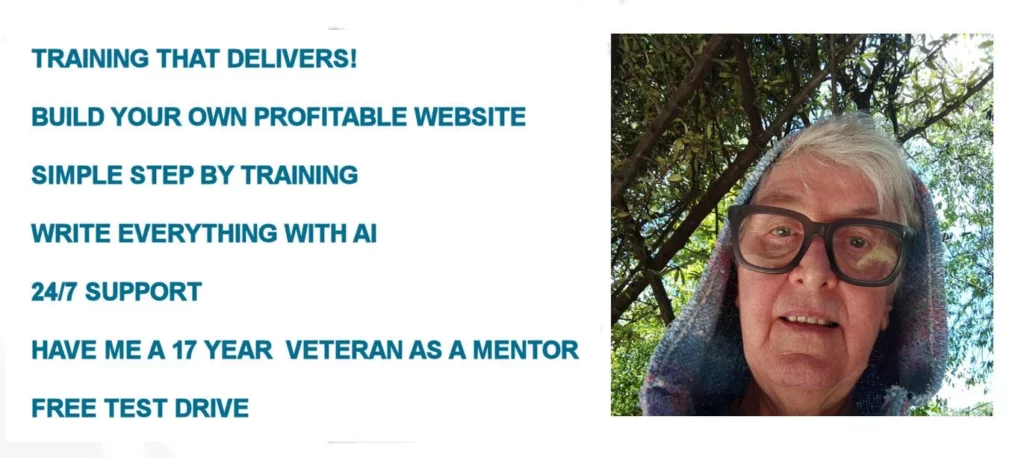You may be wondering what are the essential core skills to be a digital nomad. Indeed the question of core skills may be on your mind because you want to become a digital nomadess. My answer to this question may well surprise you, in my experience it all comes down to Adaptability. Don’t forget I have had 16 years as a digital nomadess and over fifty years of traveling. I have learned a thing or two about adaptability during that time. In this article I will share why adaptability is the cornerstone of success. Adaptability encapsulating the ability to quickly learn and adjust to new environments, cultures, and work demands. It involves a balance of professional development, emotional strength, cultural sensitivity, financial acumen, and creative problem-solving. Cultivating this skill set not only ensures survival but also enables a digital nomadess to thrive and find fulfillment in their ever-changing surroundings.

Versatility in Professional Skills
Versatility in professional skills is a cornerstone for any digital nomadess, empowering you to navigate the challenges and opportunities of the nomadic lifestyle with grace and efficiency. This versatility isn’t just about having a broad skill set but also about the ability to adapt and apply these skills in various contexts and environments. Here’s a deeper look into what it entails and why it’s critical for a digital nomadess:
Embracing a Multi-disciplinary Approach
Diverse Skill Set: A digital nomadess thrives on her ability to wear multiple hats. Whether it’s content creation, digital marketing, web development, or graphic design, possessing skills across different domains enhances your employability and opens up a wider range of opportunities. This diversity allows you to adapt to market needs and maintain a competitive edge.
Continuous Learning: The digital landscape is ever-evolving, and staying updated with the latest trends, tools, and technologies is crucial. Online courses, podcasts, webinars, and workshops are invaluable for keeping your skills sharp and relevant. AI was the skill set to learn in 2023. It completely changed the working landscape for digital nomadesses.
Adapting to Work Culturally and Technologically
Cultural Sensitivity: Working with clients and teams from around the globe requires an understanding and respect for cultural nuances. This sensitivity can influence communication styles, project management, and collaboration, making it a vital component of your professional skill set.
Tech Adaptability: Proficiency in leveraging digital tools and platforms that facilitate remote work, such as project management software, communication tools, and cloud services, is essential. Additionally this is not just knowing how to use these tools but also staying adaptable to new technologies as they emerge.
Soft Skills – What Are They?
Soft skills refer to the non-technical, interpersonal abilities that enable a person to effectively interact, collaborate, and manage themselves and others in various situations. In the context of a digital nomadess, soft skills are the bedrock of successful remote work, cross-cultural interactions, and personal resilience as they navigate the complexities of living and working in different parts of the world. These skills include communication, adaptability, problem-solving, emotional intelligence, and teamwork, among others.
How Are Soft skills different from Hard Skills
The term “soft skills” is used to differentiate these qualities from “hard skills,” which are technical skills or specific knowledge that is required to perform a job. Hard skills can be obtained through education, training programs, certifications, and experience in the field. They are easily quantifiable, such as proficiency in a foreign language, coding ability, or accounting expertise. In contrast, soft skills are less about technical proficiency and more about one’s personal attributes and the way they interact with others.
Nurturing Soft Skills
Communication: Effective communication is paramount, especially in a remote setting where most interactions may happen through written or virtual means. Clarity, empathy, and assertiveness go a long way in ensuring smooth collaborations.
Problem-solving: Being able to independently solve problems and make decisions with limited information is key when you’re in different time zones from your team or clients.
Financial and Business Management
Entrepreneurial Spirit: Many digital nomadesses are freelancers, entrepreneurs, or business owners. Understanding the basics of business management, including contract negotiation, invoicing, and financial planning, is essential for sustainability.
Marketing Building a personal brand and marketing your skills effectively can help you stand out in the digital nomad community. This includes leveraging social media, networking, and content creation to showcase your expertise.
The versatility in professional skills for a digital nomadess is about more than just being good at multiple things; it’s about integrating these skills to create a cohesive and sustainable lifestyle. It involves a continuous process of learning, adapting, and growing both professionally and personally. By cultivating a broad and adaptable skill set, you ensure that you’re not just surviving but thriving in the ever-changing landscape of digital nomadism.
Starting an online business for less than $50: Affiliate Marketing
An affiliate marketing business only requires a website. This involved purchasing a domain typically for less that $10.00 and hosting which is around $5 a month
What is Affiliate Marketing?
An affiliate is a go between between the buyer and the seller .It works across all niches.Some digital nomadesses have their own websites which just promotes Amazon products.
Affiliate marketing is a promotional method used by brands and content creators to generate sales or leads from third party referrals, i.e the affiliate. It allows affiliate marketers, also called publishers, to earn commissions by directing traffic and customers to a partner brand’s products or services.
The affiliate acts as an intermediary between merchant and customer. When the affiliate drives a user to make a purchase or complete a desired action on the merchant’s site, the affiliate earns an agreed upon percentage of the revenue or a flat fee. The merchant handles order fulfillment, support, and product delivery while the affiliate provides marketing.
To become an affiliate marketer, a publisher signs up with affiliate networks like Commission Junction or Impact Radius that facilitate partnerships between brands and affiliates. The publisher then selects products or services to promote and receives a unique affiliate link to track referrals.
The affiliate markets the merchant’s offerings on their website, social media, or other platforms through banners, links, content, and reviews. By driving qualified traffic and leads to the merchant via their affiliate link, the publisher gets rewarded for each conversion without handling physical products.
Affiliate relationships allow both parties to benefit. Merchants expand their marketing reach into new audiences and only pay affiliates based on performance. Affiliates earn income from commissions passively by directing their existing platform traffic to relevant affiliate offers. When executed effectively, it’s a scalable win-win partnership.
What Attributes do Successful Affiliate marketers share?
The most effective affiliate marketers resist the temptation to promote a broad range of offers and instead select a highly focused niche. Becoming a dedicated subject matter expert on a specific topic allows them to really understand the pain points and needs of their target audience. When affiliates can demonstrate deep knowledge and authority on issues prospective customers care about, they are much more likely to convert on referred offers.
For example, rather than generally promoting health products, a niche affiliate may specialize solely in supplements for CrossFit athletes. This micro-targeting enables the affiliate to intricately understand the needs of that customer profile and recommend the affiliate products that would provide the most value to them. The content they create around issues like workout recovery, strength building, and conditioning will better resonate with the CrossFit community.
A tight niche also allows affiliates to establish a brand identity and reputation as an authority site on a topic. Visitors come to rely on their expertise and product recommendations. As opposed to a generalist approach where the affiliate has little credibility with any audience, crafting content for a very specific and engaged subgroup can command much higher conversion rates from referrals.
In addition, deep specialization equips affiliates to find and vet the affiliate offers that genuinely match their niche audience best. Rather than sorting through hundreds of broadly appealing products, they can hone in on the few that their niche would benefit from most. Becoming a trusted resource on a focused topic is the hallmark of successful affiliate marketing.
Everyone is not a niche!

The idea is that imagine shown left a funnel is filled with grains of sand. There are 100,000 grains of sand at the top of the funnel. This represents the targeted people who are interested checking out your blog page. At least half of these targeted customers fall away. The other half the remaining 50,000 become prospects who are very interested in what you have to say, they will likely bookmark your page and return. Or they join your email list and read future blog posts. These are the people who will eventually become customers.
As you can see the image on the right is a colander. I want you to imagine that that colander is filled with water. You can imagine that the water would squirt out everywhere. Each drop of water is ac lead, leaking out of your funnel and going nowhere.
When you try and talk to everyone you fall between two stools and end up speaking to no one.

why marketing to everyone is counterproductive:
1. Waters down your message:Trying to appeal to everyone waters down your brand message into meaningless generic platitudes that fail to inspire or connect with any audience. Without a specific persona in mind, you lack a unique value proposition, story, or hook tailored to the exact wants and needs of a niche.
2. Limited Insights into pain points:When serving multiple unrelated target audiences, you can’t gain the customer insights and domain expertise to effectively solve problems for any given group. There is no depth of understanding of motivations and pain points without research on a specific market segment.
3.Potential Customers don’t think you are talking to them: Content created to vaguely appeal to all types of people often provides little relevance or value to individuals who have very defined interests, perspectives and goals. The information seems disconnected from what they truly care about.
4. You Get Lost In the Crowd: Positioning yourself as an amorphous jack-of-all-trades brand gets you lost in the shuffle, overlooked by audiences seeking niche experts who specialize in what they need. Carving out a territory others recognize you for is crucial.
5. You Get Lost In the Crowd: Positioning yourself as an amorphous jack-of-all-trades brand gets you lost in the shuffle, overlooked by audiences seeking niche experts who specialize in what they need. Carving out a territory others recognize you for is crucial.
6.You Can’t attract An Irrationally Passionate Audience: Dabbling across different spaces prevents you from nurturing deep relationships with any one audience. Loyal followings are built through consistency, expertise and engagement with a community over time around shared interests.
7.You Waste Resources:Trying to serve every market simultaneously scatters limited marketing dollars and resources across too many fragmented efforts. Focus allows greater impact on campaigns and content for a particular demographic.
8. Snooze, you lose:When marketing and selling to a broad audience, larger established brands will almost always be able to outspend and outperform a small business. Brands like Amazon, Walmart, and Target have vast resources to blanket mass markets in ways impossible for most smaller companies.This is not the case when you specialize.
In essence, the fragmentation caused by marketing to everyone often guarantees you’ll be nothing special or memorable to no one in particular. Succeeding requires embracing a specific persona and underserved niche where you can consistently deliver hyper-relevant value.
“To have an impact on your audience, you must understand their pain points”
Neil Patel
Case Study Stephanie:
My friend Stephanie, I met in Guatemala City. She had been working as a freelance writer for 5 years, taking on any client projects across a wide range of topics from technology to health to home decor. But with the crowded freelance market, she struggled to stand out and build a sustainable career.When she was struggling she found it very hard to be a digital nomadess. She initially joined Wealthy Affiliates and learned how to niche down and also how to build a more effective website.
She read an article of mine about niche marketing, she decided to focus exclusively on the financial services niche. As a former bank employee, she already had industry knowledge many other writers lacked.
Stephanie only pursued writing projects related to banking, investments, accounting, and financial advisory. This enabled her to rapidly build expertise on financial subjects and track industry news closely.
She crafted a personal brand centered around financial education and providing actionable money guidance. Stephanie shared her niche content on social media and built relationships with finance thought leaders.
Soon, Stephanie became known as a specialist freelance writer for the financial space. Financial tech firms, investment companies, banks and advisors sought her out for her niche expertise. She commanded much higher rates.
Within a year, Stephanie had a roster of high-paying finance writing clients and a steady stream of work without chasing generic writing gigs. Specializing gave her work clear focus and leveraged her experience.
The case of Stephanie demonstrates that when freelancers concentrate on serving a well-defined niche audience, they can establish a recognized specialty that leads to targeted client work and higher income. Finding an underserved niche aligned with your skills is key.
Frequently Asked Questions – Essential Core Sills to be A Digital nomadess.
“Affiliate marketing isn’t about commissions; it’s about helping people find the value they are looking for”.
Shivansh Bhanwariya
In conclusion there are many side hustles that digital nomadesses can start, but affiliate marketing is both the easiest and the cheapest. One of it’s main advantages is the fact that you can create your own niche, using your own talents and interests. It is a lot easier if you choose a niche you are passionate about because you will over time write hundreds of articles. It is a lot easier to create content when you have an irrational passion because that irrational passion will eventually lead to irrationally passionate buyers. Brands covet these buyers because tapping into irrational passions creates fierce loyalty and attachment beyond reason. Apple, Tesla, Peloton, and Yeti are examples of brands with irrationally devoted followings.
Successful entrepreneurs always ask for help. They recognize that a collaboration is always better, than a single idea. One of the best communities I know of to get help with an online business is Wealthy Affiliate. I have been a member since 2007 and mentor many people. Click on the link, create a free account, and let me mentor you. it;s not just my fifty years in business but a community of over a million people here to help you become profitable.









